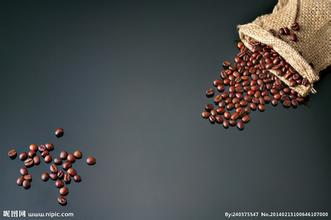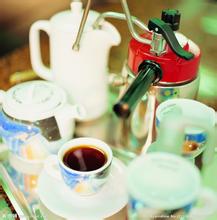Kenya Jinchu Coffee Flavor Manor with rich and perfect taste characteristics of boutique coffee
The Kenyan government takes the coffee industry extremely seriously, and it is illegal to cut down or ring coffee trees here. Kenya's coffee buyers are world-class buyers of premium coffee, and no country grows, produces and sells coffee as consistently as Kenya. All coffee beans are first acquired by the Coffee Board of Kenya (CBK), where they are appraised, graded and then sold at weekly auctions, where they are no longer graded. The Kenya Coffee Board acts only as an agent, collecting coffee samples and distributing them to buyers so that they can determine price and quality. Nairobi auctions are held for private exporters and the Kenya Coffee Board pays growers below-market prices. The best coffee grade is bean berry coffee (PB), followed by AA++, AA+, AA, AB, etc., in that order. Fine coffee is shiny, delicious and slightly aromatic. The auction is also organized to meet the needs of the distributor. These auctions usually sell small quantities (3-6 tons each), with samples bearing the grower's logo for buyers to appreciate. After auction, exporters pack according to different flavors, different qualities and quantities required by blenders. This provides a great deal of flexibility for the deployer. Quality-conscious germans and nordics are long-term buyers of kenyan coffee.
On an international scale, the growth in Kenyan coffee production has been remarkable, with exports rising from 800,000 bags in 1969- 1970 to 2 million bags in 1985-1986. The average yield is stable at 1.6 million bags, with an average yield of about 650 kg/ha. Even before the coffee price spike, the average price of coffee in Kenya had been rising. 1993--1994 Prices are 50% higher in 2010 than they were 12 months ago. Price increases are mainly the result of increased demand.
Kenyan coffee
Kenyan coffee
Some buyers, especially Japanese ones, have complained about Kenya's coffee system. Some traders say the quality of coffee in the country has declined, pointing out that buying directly from farmers may be one way to improve quality. Either way, kenya's detailed rules and procedures are a model for all coffee-producing countries.
Kenyan coffee gained further fame with the Hollywood blockbuster Out of Africa.
In the film Merrill. Mary Streep plays Karen, a writer and coffee plantation owner. Many people probably still remember the breathtaking views and magnificent sunsets in the film, but even more memorable is Karen's dream of owning a coffee plantation in Africa.
Flavor Editor
Kenyan coffee
Kenyan coffee
Aromatic, rich, fruity, rich and perfect on the palate. Kenya coffee has a wonderful fruity flavor, with a blackberry and grapefruit flavor, and is a favorite of many coffee lovers. This coffee has an excellent medium purity, crisp and refreshing taste. Fresh flavor and best for iced coffee in summer. When tasting this coffee, if it is accompanied by fruit with acidity such as grapefruit, it will definitely give me the best coffee experience. "Less coffee, more fruit tea" is the common feeling many people have about this light roasted Kenyan coffee. In addition to the obvious and fascinating fruit acidity, Kenya coffee is mostly grown by small coffee farmers in a variety of different environments, with different climates and rainfall each year, bringing a variety of distinct and unique personalities. Take AAPlus grade "KenyaAA+Samburu" as an example. Samburu of 2001 has strong dark plum fragrance, low acidity and strong taste. Samburu newly harvested in winter of 2002 presents completely different flavor. Mulberry berry and green plum, accompanied by a little spicy flavor. After drinking, it has sweet fragrance of green tea. The acidity is slightly higher than that of the previous year, and the taste is still strong. The usual Kenyan flavors are not intense, but have fruity bright flavors, some with spices and some with red wine aromas. That's what Kenya does. It's what keeps coffee fans excited and surprised.

Important Notice :
前街咖啡 FrontStreet Coffee has moved to new addredd:
FrontStreet Coffee Address: 315,Donghua East Road,GuangZhou
Tel:020 38364473
- Prev

The taste of Ecuadorian coffee is very balanced and refreshing. Introduction to the characteristics of Galapa Manor.
In the mid-15th century, there were legends about enchanted mysterious islands among fishermen fishing in the western Pacific Ocean of South America. It is said that the islands can sometimes be seen clearly from a distance, but when the ship approaches, it disappears again; sometimes it looks like a galleon, sometimes it shows the shape of a witch. The fishermen called these islands Magic Island and thought it was there.
- Next

Flavor and taste of Panamanian boutique coffee beans introduction to the planting environment of Rosa coffee in manor area
Panamanian coffee is famous for the rosy summer of the Emerald Manor, which is also famous in the Boquete region of its Chiriqui province. Poquet Boquete is a town of Chiriqui in the province of Riki. It is located near the border between Panama and Costa Rica, near the famous Baru Baru volcano.
Related
- Detailed explanation of Jadeite planting Land in Panamanian Jadeite Manor introduction to the grading system of Jadeite competitive bidding, Red bid, Green bid and Rose Summer
- Story of Coffee planting in Brenka region of Costa Rica Stonehenge Manor anaerobic heavy honey treatment of flavor mouth
- What's on the barrel of Blue Mountain Coffee beans?
- Can American coffee also pull flowers? How to use hot American style to pull out a good-looking pattern?
- Can you make a cold extract with coffee beans? What is the right proportion for cold-extracted coffee formula?
- Indonesian PWN Gold Mandrine Coffee Origin Features Flavor How to Chong? Mandolin coffee is American.
- A brief introduction to the flavor characteristics of Brazilian yellow bourbon coffee beans
- What is the effect of different water quality on the flavor of cold-extracted coffee? What kind of water is best for brewing coffee?
- Why do you think of Rose Summer whenever you mention Panamanian coffee?
- Introduction to the characteristics of authentic blue mountain coffee bean producing areas? What is the CIB Coffee Authority in Jamaica?

